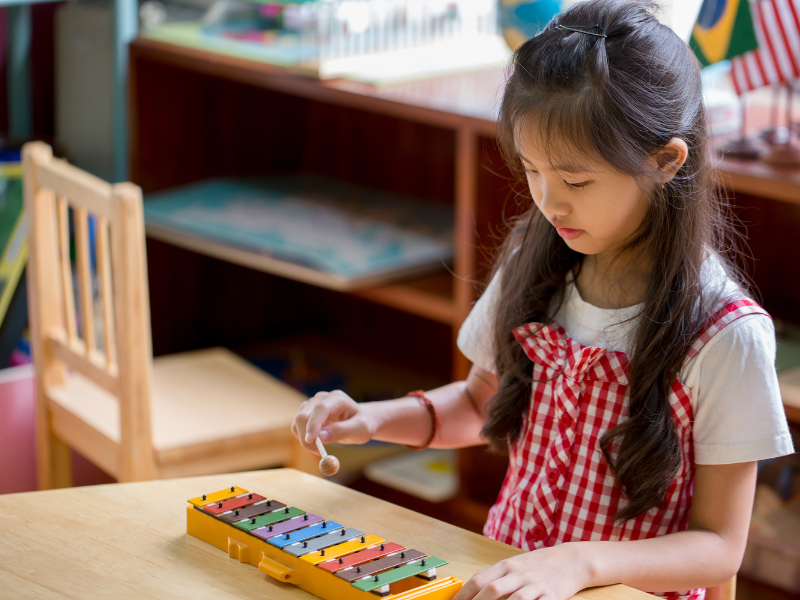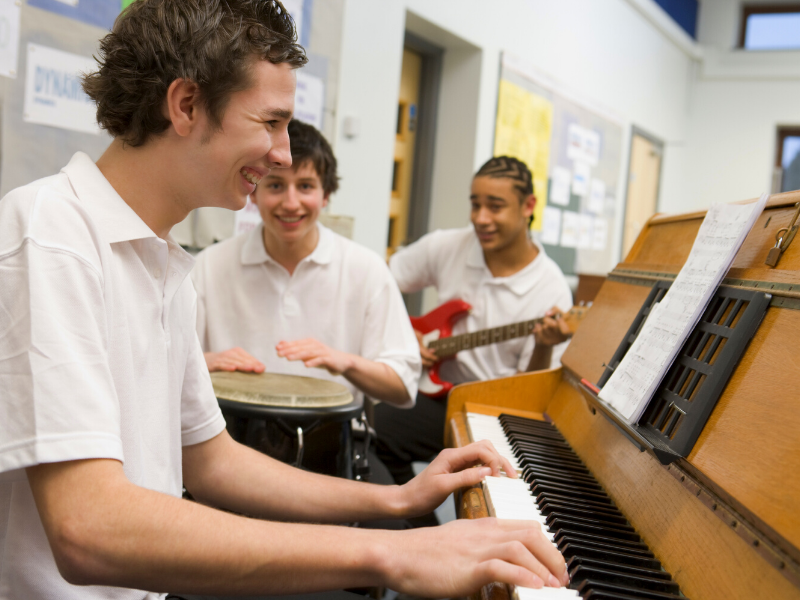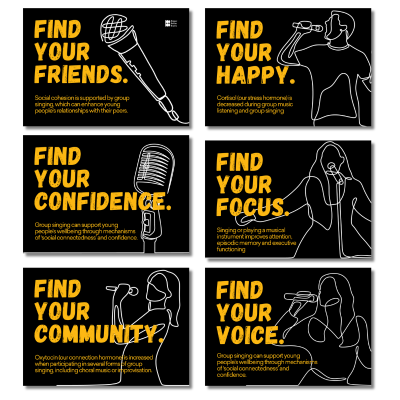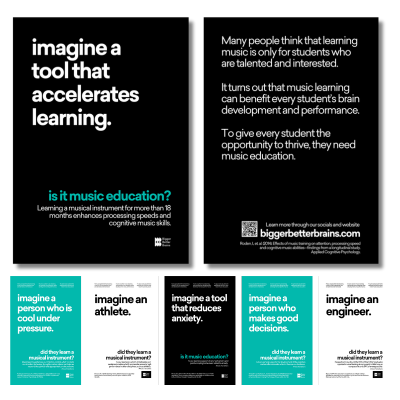
Research Updates

Here at Bigger Better Brains we believe that through educating yourself, you can then educate and affect positive change in your community.
With all of the research in the field of neuromusical science, our BBB Research section serves as a content hub for you. We regularly share findings and break down the latest research to educate and inspire discussion. We hope you enjoy this page on our website and share BBB news with your colleagues, parents and students.
- Academic Achievement
- Advocacy
- Ageing
- Aging
- Attention
- Auditory Processing
- Cognitive Health
- Communication
- Community
- Dyslexia, Autism & ADHD
- Early Childhood
- Executive Function
- Fireworks
- Hearing
- Impulse Control
- Language & Literacy
- Memory
- Music Learning
- Music Listening
- Neural Development
- Parents
- Personality
- Productivity
- Prosocial Behaviour
- Prosody
- Reading
- Rehabilitation
- Research Bites
- Research Methods
- Research Quick Reads
- Reward
- Singing
- Social Skills
- Video
- Wellbeing & Therapy
- Working Memory
The Future of Work: Why Music Learning Prepares Students for Tomorrow’s Jobs
The World Economic Forum's Future of Jobs Report 2025 highlights the critical skills that will define the workforce of tomorrow.
How Music Primes the Brain for Learning
This article delves into the transformative impact of music education, particularly for underserved students, and a strategic tool for addressing academic challenges, boosting attendance, language skills, and social integration.
Explaining music and the brain to young children
You don’t have to be a musician to reap the benefits of music. Enjoying music activates a slew of brain regions, including areas involved in hearing, movement, reward, and emotion.
Singing at work = better job performance
Imagine having a singing group at your work. Imagine starting the day with a song with your colleagues. What would your work culture feel like and how would you feel about going to work?
Why does music bring us pleasure?
This study shows for the first time a causal role of dopamine in musical pleasure and motivation: enjoying a piece of music, deriving pleasure from it, wanting to listen to it again, being willing to spend money for it, strongly depend on the dopamine released in our synapses.
Can music listening and performance change our genes?
Possibly! This heavy duty article highlights the recent research which has found that music listening and performance has been found to influence how genes behave or regulate themselves. The first few sentences set the scene and we have done a translation for you.
Are neuroscientists causation happy?
Prof Schellenberg compared 114 articles about music training and brain development and then analysed the titles and abstracts for the inference of causational (one action causes another) findings and correlational (a connection between two things) findings.
Are all studies created equal?
Periodically the research community completes a systematic review, sometimes known as a literature review, of a given area of research.
Musical tastes can predict personality traits and political leaning
Do you have similar musical tastes to your friends? How about your work colleagues? Do you think musical tastes tell us anything else about a person? This study thinks it might when it compared musical taste with political leaning.
Would you want to know your musical potential?
Here is one hell of a tricky question – if your musical potential, meaning your likelihood of being successful at learning music (whatever that really means) could be measured, would you want to know?
How playing the drums changes the brain
In this recent study, drummers were researched because “Most people can only perform fine motor tasks with one hand and have problems playing different rhythms with both hands at the same time,” but, “Drummers can do things that are impossible for untrained people.”
What happens when one twin practises and the other doesn’t?
Talk about a great experiment. Researchers in Sweden surveyed 83 sets of monozygotic (identical) twins to find 10 pairs who fit the following criteria – only one sibling in each pair currently played a keyboard instrument (piano, organ, keyboard) and within the pair, a difference in total hours of music practice was at least 1000 hours.
Music Learning Helps Learning Difficulties
The ‘Music Learning Helps Learning Difficulties’ series consists of three information documents to provide you with the research behind how music learning helps a particular area of learning.
Why studying music and the brain is so fascinating, and so difficult
Studying how the brain processes music and how music changes the brain has fascinated neuroscientists for almost 30 years. But these two types of studies, how the brain processes music and how music changes the brain, are also very difficult.
What makes a musical prodigy?
Is it nature or nurture? Is it biological, magic or a quirk?
It is never too late to start learning piano
Research into music learning has found that, while it is a great activity for physical, cognitive, emotional and social development during childhood, it can be just as impactful to learn a musical instrument when we are adults.
Challenge your brain with different music!
This study looks at how our brains engaged with familiar and unfamiliar music. Turns out our brains sustains engagement with music that is unfamiliar.
Music is a neurobiological reward!
The reward network in our brains is one of the most fascinating areas of the brain. It is often the underlying network that propels our behaviour as well as override our good judgement. It is also one of the key networks in learning.
Music synchronises our brain!
There is a theory called the theory of familiarity in music. It is, as described at the end of this article, the idea of an inverted U.
Being musical is part of our human design
In today’s world, filled with myriad parenting methods and high-tech toys that promise to enhance infant development, it is easy to overlook how fundamental the time-honoured practice of music is for all children—starting pre-birth.
Everything in moderation, including syncopation and harmony
This new research looks at the emotive factors in music and uses an idea called the “inverted U”.
Where does perfect pitch come from?
There is a great deal of debate around this question. In the research, the term Absolute Pitch (AP) is used for the more common term of perfect pitch. This recent study points to a stronger genetic link than previously thought.
I got rhy-thm?
Do you know someone who seems to have rhythm coming out of every part or pore and other people who couldn’t walk to a beat if their life depended on it?
If you have perfect pitch, your brain looks different!
Researchers have known for sometime that the brain structures (parts) of a person with absolute pitch has specific areas that are identified as unique or different. However, they don’t know how those structural differences might function or connect in equally unique or specific ways.
Why does white matter matter?
You have probably heard of grey matter but have you heard of white matter? White matter in our brain is tissue composed of nerve fibres.
There isn’t a music centre in the brain, the brain is the music centre
We used to think that there was a centre for every major processing task, like language or maths. We know that there are both centres for processing as well as a complex set of interlinking and overlapping networks that contribute to the processing of information.
Are musicians‘ brains wired differently?
Dr Psyche Loui is a psychologist, neuroscientist and musician who investigates how music can be used to understand the brain. She is a violinist and works to connect our understanding of the brain with the experience of being a music learner and performing musicians.
Here’s how to train your brain!
There is an interesting term in this article – experience-dependent plasticity. Here is a good plain language definition that also happens to include a musical reference.
Starting music at 6 years old supercharges the brain
Here is one of those research sentences that are so useful when we are explaining how music learning impacts on every child’s development.
A solution to stuck song syndrome!
Finally, that song that keeps playing on a loop inside our heads for no apparent reason has a name – stuck song syndrome!







































